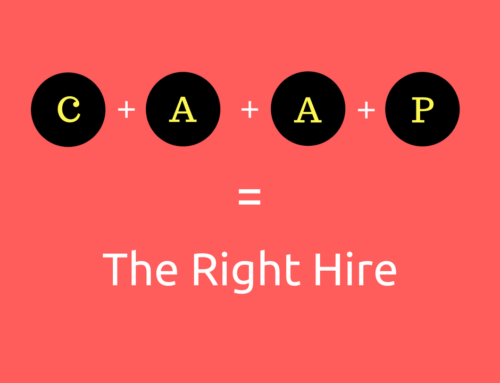Recently I came across the following in a post on LinkedIn:
“Last year alone, S$80 million was spent in Singapore on avoidable recruitment costs. According to the Adapt to Survive study by LinkedIn and PwC, longer time taken to find the right candidates in 2013 led to unnecessary recruitment expenditure. The report also found over 21% of employees in Singapore resign within their first year, compared to the Netherlands, where the short-term resignation rate was only 4%. With figures like those, HR leaders need to pull out all the stops when it comes to their recruitment efforts and make sure they’re getting the right bang for buck.???
(source: http://www.humanresourcesonline.net/events/singapore-spent-80m-unnecessary-recruitment-costs/)
21% of employees in Singapore resign within the first year? That’s five times the short-term resignation rate in the Netherlands!
In other words, for every 10 employees you hire, 2 will resign within the first year.
Now the big question is “WHY????
I’ve worked in various organizations over the last 2 decades and I have made a couple of observations that I believe are the root causes of such an anomaly.
Here are 4 reasons why I believe organisations are losing new hires as quickly as they hire them:
1. Organisations are over-selling themselves
In their quest to hire the best candidates, some organisations end up painting a rosy picture of the organisation that is too good to be true. They end up “selling??? their organisation to the candidates just in order to persuade them to join the organisation.
Organisations need to be truthful to their candidates about what can or cannot be done within the organisation, and what the organisation really is. It is vital that expectations are set right up-front especially during the interviewing and selection stages so that candidates do not start their tenure with the organisation with unrealistic and mismatched expectations.
Interviewers and hiring managers should describe their organisations as they really are without resorting to “selling??? their organisation just to entice the candidate to join them.
2. Wrong Fit – failure to understand Cultural Fit
Most interviewers and hiring managers tend to overlook Cultural Fit when hiring a candidate. Most hiring managers are so focused on Skills, Qualifications and Experience that they almost always overlook the importance of Cultural Fit.
For instance, hiring someone who enjoys and thrives in a dynamic and fast-paced corporate environment will find it a torture to join an organisation that moves and makes decisions very slowly and one that is extremely risk averse.
I’m not saying that skills, qualifications and experience are not important however as you move up the corporate hierarchy, the emphasis should be less on skills and qualifications, and more on Cultural-, Attitude- and Aptitude-based qualities of the candidates.
3. Hiring the Paper and not the Person
The current process of reviewing Resumès inevitably causes many hiring managers to end up hiring the Resumès rather than the candidates. What I mean is that hiring managers almost always end up validating the Resumès instead of validating the person they are interviewing. We are generally visual creatures and we have a tendency to be attracted to professionally crafted Resumès, especially when the Resumè comes with a professionally done headshot photograph of the candidate.
In addition, hiring managers have a tendency to ask questions based largely on the Resumès and fail to explore beyond the Resumès.
4. Poor Interviewing and Hiring Skills
Having had the privilege to interview and hire many candidates, and working alongside HR, I have observed that many hiring managers and HR professionals alike are not adequately trained in interviewing and selection skills. Many are quite good at asking starting and opening questions; however most stumble when it comes to asking effective follow-up questions.
When interviewers fail to ask effective follow-up questions, they lose precious opportunities to understand their candidates in a deeper way.
Bottom-Line
If you want to ensure your new hire’s stick rate is maximized, you must look beyond skills, qualifications and experience. You will also have to be very aware of your personal biases when reviewing candidate’s Resumès and not be hood-winked into picking only those Resumès or candidates that look good.
Be truthful about your organisation’s culture and what can and cannot be done within the organisation, and set the candidate’s expectations right from the start.
And finally brush-up on your interviewing and selection skills, and learn to validate the person and not the Resumè.
Do you agree? What do you think?
Receive articles and Newsletters directly in your mailbox AND receive a sample chapter on How to Craft Effective Interview Questions from my yet-to-be released book How to Hire the Right People Every Time: The Executive’s Guide to Getting It Right.
Get your free chapter here







Leave A Comment